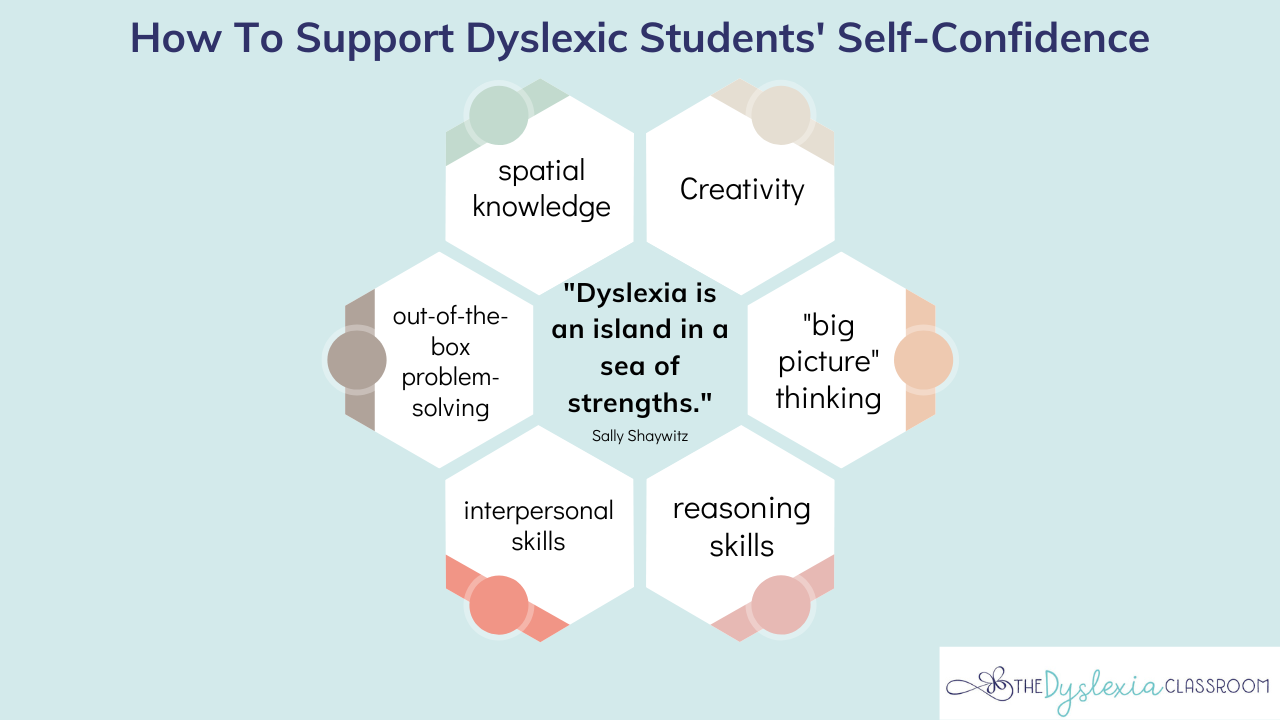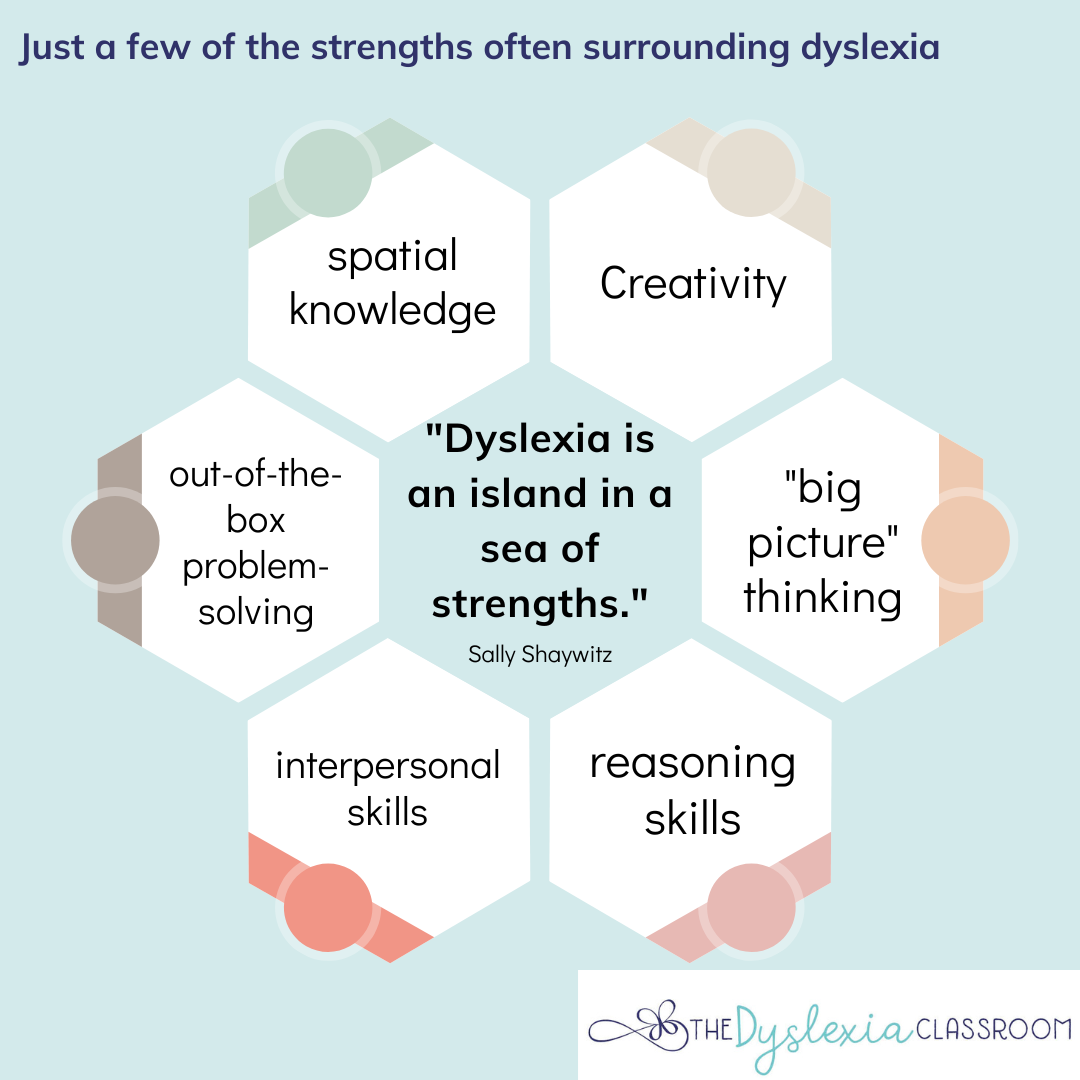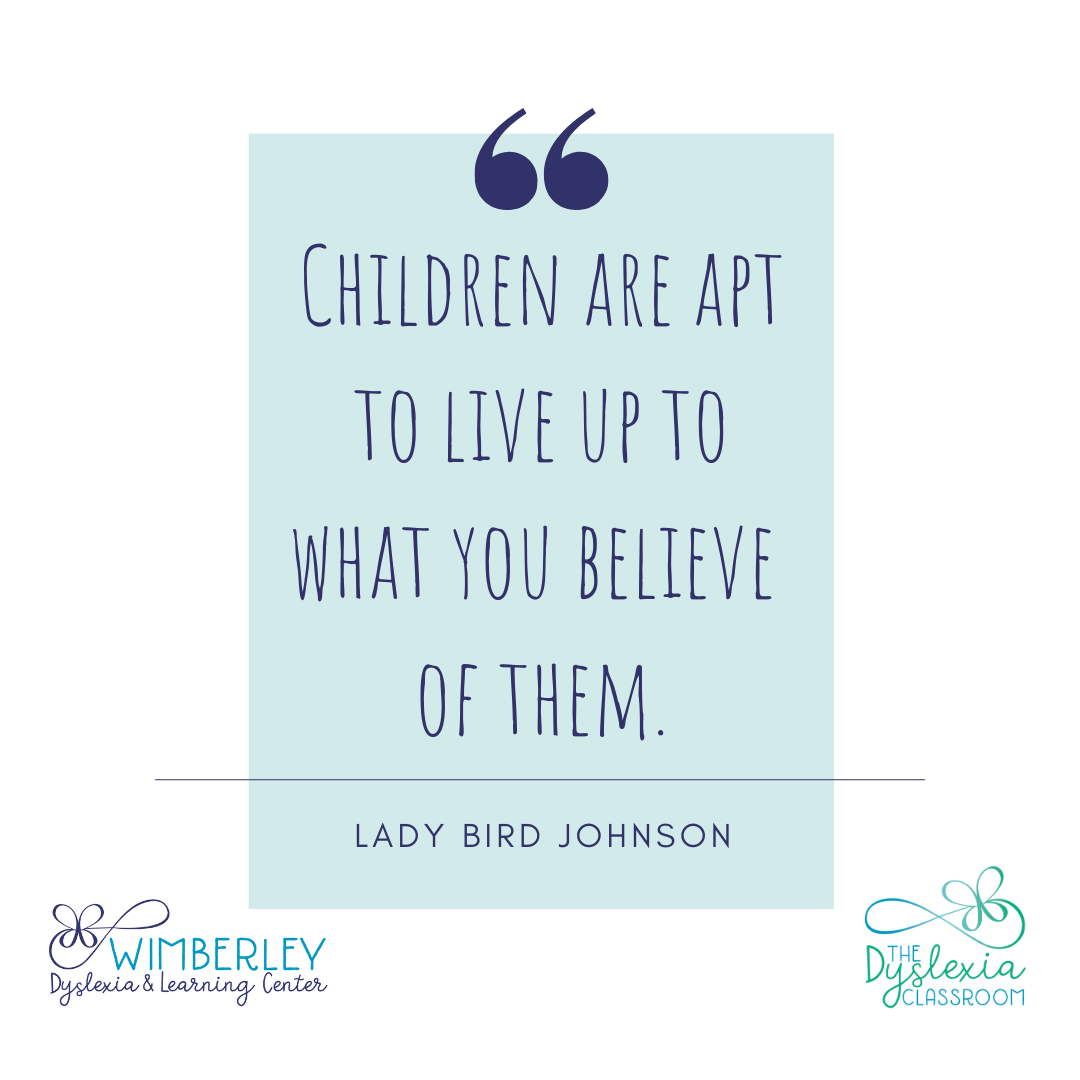How To Support Dyslexic Students' Self-Confidence

When we think of dyslexic students and struggling readers, we know that academic support is crucial to success. We understand that the science of reading and structured, systematic instruction is essential for students to achieve literacy success.
We also know that struggling children may be surrounded by feelings of shame, unacceptance, anxiety, and low self-esteem. In fact, research shows that 29% of dyslexic students also have depression and/or anxiety, some of which is heightened by the expectations and struggles that come along with dyslexia.
We all want our children to feel successful and confident and know the importance of looking at the other components that support student success. But it raises the question of how.
Support For Student Success
How do empathy and understanding of dyslexia support success and self-confidence?
How does the environment support success?
What role do mindset and metacognition play?
How can we build self-advocacy skills, and what is the role of the educator within this framework?
In my experience, all of these pieces together lead to success and self-confidence for all students, especially those struggling.
Educators and parents can help our children recognize their areas of strength. So often throughout the school day, dyslexic students are surrounded by everything that makes them feel inadequate. When we can help children identify areas they exhibit as strengths, that is a lifeline.
While we often hear about the deficits of dyslexia, it's important to understand and highlight areas of strength. Dr. Helen Taylor and other researchers from the University of Cambridge suggest that we redefine dyslexia as a strength rather than a disability, stating, "The deficit-centered view of dyslexia isn't telling the whole story." In the report, The Value of Dyslexia, from professional services firm EY and Made by Dyslexia, they argue that dyslexia is a strength that can help employers identify key skills that are growing in demand.

Dyslexic Learners
One of the common indicators of dyslexia is that it is unexpected in relation to a student's cognitive abilities. Dyslexic learners are bright and often display strengths in spatial knowledge, creativity, "big picture" thinking, reasoning, interpersonal skills, and problem-solving skills. For this reason, Dr. Sally Shaywitz says, "Dyslexia is an island of disability in a sea of strengths."
If you ask my students, they will tell you that their brain processes information differently and that everything clicks with the proper delivery of information.
While we often hear about deficits, it's essential to understand and highlight areas of strength. Research has shown that building on strengths is highly effective. Drexel University conducted studies around highlighting dyslexic strengths. They learned that when teachers became aware of their student's creative strengths, positive changes occurred in their teaching and student interactions, as well as positively affecting student self-efficacy (Reussman & Bach, 2002). This strength-based language can create a sense of deeper understanding and help build self-esteem.
Ways To Develop & Preserve Dyslexic Learners' Self-Confidence
- Authentically recognize a student's strengths. Children are keen to realize when someone is inauthentic. Speak the truth and identify, highlight, and state the strengths you see in each student. Our children are incredibly smart; one of their strengths is often their interpersonal skills and intuition. Kids know when you aren't being honest. Connect with compassionate empathy and show them through consistent actions that you believe in them and will support them and hold them to put forth their best effort.
- Praise privately and openly. Building connections and trust with students is important, especially for students who have disengaged or experienced a great deal of failure. They may not yet recognize their talents or skills, and as educators and parents, we can honor the differences each child brings and highlight these talents. This recognition helps students understand there is value in what they bring to the world. Dyslexia doesn't define them, there is no ceiling, and they too can achieve their dreams.
- Provide opportunities for those strengths to shine. Some of the strengths of many dyslexic thinkers are creativity, spatial awareness, reasoning skills, out-of-the-box problem solving, interpersonal skills, and big-picture thinking. Traditional school assignments may not provide students opportunities to showcase these strengths. We can provide different ways for students to show what they have learned. This may take some reflection and revamp on our part, but the outcome for our students strengthens their self-esteem, reinforces their talents, and promotes a positive learning cycle.
- Lead students to self-reflect on their strengths and develop a growth mindset. Many students struggle with the self-recognition of their strengths and their ability to grow their intelligence (growth mindset). The feedback that we provide to students directly impacts their mindset. We want to bring awareness to students' strategies, thought processes, and approaches to solve problems instead of being based solely on intelligence. Dr. Carol Dweck, author and researcher who coined "Growth Mindset," states that, "Understanding the power of a positive and growth mindset can have dramatic consequences on dyslexic individuals' approaches to challenges, setbacks, and academic efforts, especially while at school." In our lessons, I know how precious each minute of instruction is, but the power of metacognitive skills and self-awareness brings value to your sessions and builds self-confidence. The big takeaway that I want my students to have is that using these metacognition skills and a growth mindset can help us overcome obstacles to achieve our goals and recognize our unique strengths.

Dyslexia - a gift or not?
I have seen many comments recently on social media making big statements about dyslexia not being a gift. Many of these researchers and educators make statements about dyslexia and focus on the deficit-only piece of dyslexia. I believe we need to be very mindful and understanding when making statements about what is/isn't a gift.
When working with students in a therapeutic setting for dyslexia, I see my students' amazing talents and "out-of-the-box" thinking that are overlooked in a deficit-only mindset or traditional school design. While I don't use the specific phrasing that dyslexia is a "gift" because dyslexia is challenging, I think we should help students see themselves as more than their dyslexia. We must guide our students in identifying their talents (we all have them!) to preserve self-esteem and realize that every one of us brings something beautiful to this world.
So often, our students are surrounded by a sense of failure and can't see their gifts. We can help them see their uniqueness. Also, suppose we understand that dyslexia is under the neurodivergent umbrella. In that case, it is part of who they are and isn't separate - it isn't something that goes away, so a mindset about embracing challenges and strengths can empower students.
While I appreciate people's perspective on using/not using the statements about dyslexia and gifts, I feel that it is not my place to say it is/isn't - that is for the person walking this journey. 🦋
Want to read more? Check out this blog post.

This information is the intellectual property of @2016 The Dyslexia Classroom. Do not use or repurpose without expressed permission from The Dyslexia Classroom. Please give The Dyslexia Classroom an attribution if you use, reference, or quote/paraphrase copyrighted materials. This includes but is not limited to blogs, social media, and resources.



